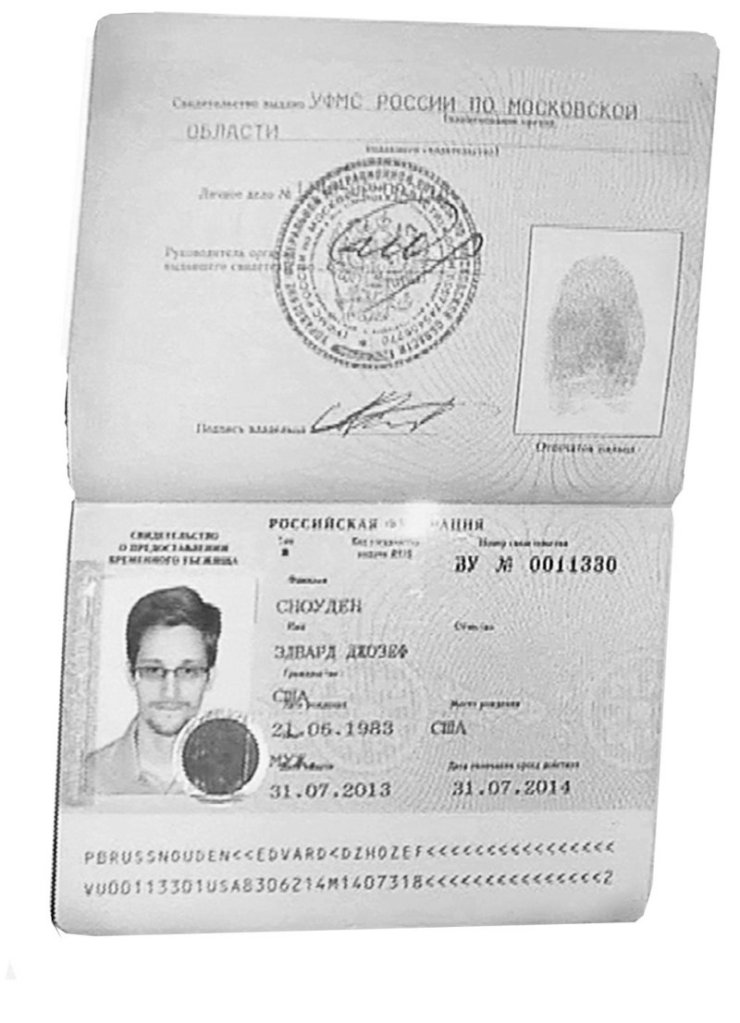The world’s most closely watched layover ended Thursday as Russia granted temporary asylum to Edward Snowden, the accused intelligence leaker who’d been holed up in a Moscow airport’s transit lounge since June 23.
The Obama administration, which for weeks had issued only muted criticism of Russia as it implored President Vladimir Putin’s government to “do the right thing,” lashed out at the decision to offer Snowden a haven but didn’t dwell on possible repercussions.
Members of Congress fumed, calling on President Obama to respond firmly. Sen. Lindsey Graham, R-S.C., said the affront was a “game changer” for U.S.-Russia relations. Sen. Charles Schumer, D-N.Y., said “Russia has stabbed us in the back” and asked Obama to recommend moving the G-20 economic summit, which is scheduled for next month in the Russian city of St. Petersburg.
But relations with Russia already are so frayed, analysts say, that there’s little the United States could do to punish Putin for taking in Snowden, who’s regarded by many here and abroad as a whistle-blower for revealing a top-secret government spy program.
As dramatic as Snowden’s revelations are, his hiding out in Russia may not even be the worst snag in bilateral relations, which have deteriorated over the past 18 months and killed Obama’s goal of a “reset.” Other strains include disagreements over Syria, Russia’s freeze on U.S. adoptions of Russian children, and Congress’ approval of a law barring several Russian officials from entering the United States.
“We don’t have a lot of leverage in that regard,” said Andrew Kuchins, director of the Russia and Eurasia Program at the Center for Strategic and International Studies, a research institute in Washington.
The White House expressed extreme disappointment with Russia’s decision, said it hadn’t gotten a heads-up from the Russian government and wouldn’t elaborate on any steps it might take as a repercussion beyond evaluating whether Obama should cancel a scheduled meeting with Putin in Moscow before the G-20 summit in September.
FOREIGN TRAVEL QUESTIONABLE
Snowden, 30, a former CIA employee and National Security Agency contractor, revealed himself to be the leaker of classified documents about surveillance programs. The U.S. government has charged him with various felonies under the Espionage Act.
Now that asylum has been granted, Snowden ostensibly has the same rights as anyone in the country, although it wasn’t clear whether his Russian papers could serve as documents that would allow him to travel to other countries.
Even though Ecuador, Bolivia and Nicaragua have offered Snowden asylum, he was effectively stranded in Moscow because the U.S. government had revoked his passport, and all flight paths out put him in danger of interception by U.S.-friendly nations that probably would have returned him to the United States.
The State Department also launched a campaign to make sure that any nation that was a potential pit stop on Snowden’s way to Latin America would take steps to stop him.
POLL RESULTS UNCHANGED
Snowden’s escape from the airport came on the day it was revealed that most American voters — 55 percent, across party lines — consider Snowden a whistle-blower and not a traitor, according to a Quinnipiac University poll. Thirty-four percent say he’s a traitor. The finding is unchanged from a July 10 survey, but it shows remarkable consistency in the views of different groups of Americans. Even a majority of Republicans, 51 percent, thought Snowden was a whistle-blower, not a traitor.”Most American voters think positively of Edward Snowden, but that was before he accepted asylum in Russia,” said Peter A. Brown, assistant director of the Quinnipiac University Polling Institute.
A McClatchy-Marist poll last week found that a majority of Americans feel the government has gone too far in monitoring the digital activity of private citizens. Responses were mixed on Snowden, but that survey, too, found that a plurality of Americans think he’s a whistle-blower, not a traitor, by 49 percent to 38 percent.
The asylum grant came despite assurances last week by Attorney General Eric Holder that Snowden would not face the death penalty or torture if he were returned to the United States. In a letter made public Friday, Holder told Russian Justice Minister Alexander Konovalov that the former contractor’s professed fears of facing abuse and possible execution are “entirely without merit.”
Snowden’s attorney, Anatoly Kucherena, said on Russian television that his client had been granted a yearlong asylum. He confirmed that Snowden had left the airport, but he wouldn’t divulge his new location out of security concerns.
Send questions/comments to the editors.




Success. Please wait for the page to reload. If the page does not reload within 5 seconds, please refresh the page.
Enter your email and password to access comments.
Hi, to comment on stories you must . This profile is in addition to your subscription and website login.
Already have a commenting profile? .
Invalid username/password.
Please check your email to confirm and complete your registration.
Only subscribers are eligible to post comments. Please subscribe or login first for digital access. Here’s why.
Use the form below to reset your password. When you've submitted your account email, we will send an email with a reset code.